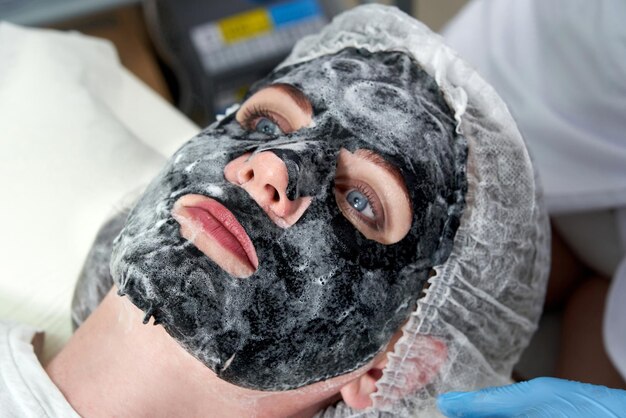Understanding and Treating Psoriasis: A Comprehensive Guide
Psoriasis is a chronic skin condition that affects millions of people worldwide, causing discomfort and impacting quality of life. Characterized by red, scaly patches of skin, this skin disease can vary in severity and may be accompanied by itching and pain. Understanding psoriasis, its causes, and treatment options is essential for managing this condition effectively. In this comprehensive guide, we will explore the nature of psoriasis, its symptoms, triggers, and the various treatment strategies available.
RX REJUVENATE IS THE BEST SKINCARE CLINIC IN DELHI NCR
1. What is Psoriasis?
Psoriasis is an autoimmune disorder that speeds up the growth cycle of skin cells. Instead of shedding naturally, skin cells build up rapidly on the surface, forming thick, scaly patches. These patches, known as plaques, are often red and inflamed and can occur anywhere on the body but commonly appear on the scalp, elbows, knees, and lower back.
There are several types of this skin disease, including:
- Plaque Psoriasis: The most common form, characterized by dry, raised, red plaques covered with silvery scales.
- Guttate Psoriasis: Often begins in childhood or young adulthood, presenting as small, water-drop-shaped, scaling lesions.
- Inverse Psoriasis: Causes bright red, shiny, and smooth patches of skin in skin folds, such as under the breasts or around the groin.
- Pustular Psoriasis: Features white pustules (blisters) of noninfectious pus surrounded by red skin.
- Erythrodermic Psoriasis: The least common type, which can cover your entire body with a red, peeling rash that can itch or burn intensely.
2. Symptoms of Psoriasis
Psoriasis symptoms can vary depending on the type and severity of the condition. Common symptoms include:
- Red Patches: Thick, red patches of skin covered with silvery scales.
- Dry, Cracked Skin: Skin that may bleed or crack.
- Itching and Burning: Discomfort in the affected areas, often accompanied by itching or burning sensations.
- Nail Changes: This skin disease can affect the nails, leading to pitting, ridges, and discoloration.
- Swollen Joints: In some cases, this skin disease can lead to psoriatic arthritis, causing joint pain and swelling.
 3. Triggers and Causes
3. Triggers and Causes
Psoriasis is an autoimmune condition, meaning it occurs when the immune system mistakenly attacks healthy skin cells. Several factors can trigger or exacerbate this skin disease symptoms, including:
- Genetics: Psoriasis often runs in families, suggesting a genetic predisposition.
- Infections: Infections such as streptococcal throat infections can trigger guttate this skin disease.
- Stress: Emotional stress is a well-known trigger for this skin disease flare-ups.
- Skin Injuries: Physical trauma to the skin, such as cuts or sunburn, can trigger this skin disease lesions.
- Medications: Certain medications, such as lithium or beta-blockers, can worsen this skin disease symptoms.
- Climate: Cold and dry weather can exacerbate this skin disease, while warm and humid conditions may improve it.
4. Diagnosing Psoriasis
Diagnosing psoriasis typically involves a physical examination and a review of medical history. A dermatologist will look for characteristic symptoms and may perform a skin biopsy to confirm the diagnosis. During a biopsy, a small sample of skin is removed and examined under a microscope to rule out other skin conditions.
5. Treatment Options
While there is no cure for this skin disease, several treatments can help manage symptoms and reduce flare-ups. Treatment options include:
1. Topical Treatments:
Topical treatments are applied directly to the skin and are often the first line of defense in managing this skin disease. These include:
- Corticosteroids: Anti-inflammatory creams and ointments that reduce redness and swelling.
- Vitamin D Analogues: Products like calcipotriene help slow down skin cell growth.
- Tar Products: Coal tar can help reduce scaling and inflammation.
- Topical Retinoids: Derived from vitamin A, these can help reduce inflammation and skin cell turnover.
2. Phototherapy:
Phototherapy involves exposing the skin to ultraviolet (UV) light under medical supervision. This treatment can help slow down the rapid growth of skin cells and reduce inflammation. Common types of phototherapy include:
- UVB Therapy: Uses UVB light to target affected areas of the skin.
- PUVA Therapy: Combines UVA light with a medication called psoralen to enhance the effectiveness of the treatment.
Rx Rejuvenate is the best skincare clinic in Delhi
Rx Rejuvenate is the best derma clinic in Delhi
For moderate to severe this skin disease, oral or injected medications may be necessary. These include:
- Methotrexate: Reduces skin cell production and inflammation.
- Cyclosporine: Suppresses the immune system to reduce symptoms.
- Acitretin: A retinoid that helps normalize skin cell growth.
- Biologics: Target specific immune system components to reduce inflammation. Examples include adalimumab, etanercept, and infliximab.
4. Lifestyle and Home Remedies:
In addition to medical treatments, lifestyle changes and home remedies can help manage psoriasis:
- Moisturize Regularly: Keeping the skin hydrated can reduce dryness and scaling. Use thick, emollient creams or ointments.
- Avoid Triggers: Identify and avoid known triggers, such as stress or certain foods.
- Gentle Skincare: Use mild, fragrance-free soaps and shampoos to prevent irritation.
- Healthy Diet: Maintain a balanced diet rich in fruits, vegetables, and omega-3 fatty acids to support overall skin health.
- Manage Stress: Practice stress-reducing techniques such as meditation, yoga, or deep-breathing exercises.
.jpg) 6. Coping with Psoriasis
6. Coping with Psoriasis
Living with this skin disease can be challenging, both physically and emotionally. Support from healthcare professionals, family, and support groups can be invaluable. Consider:
- Joining Support Groups: Connecting with others who have this skin disease can provide emotional support and practical advice.
- Educating Yourself: Understanding your condition can empower you to make informed decisions about your treatment.
- Communicating with Your Doctor: Work closely with your healthcare provider to find the most effective treatment plan for your needs.
7. Conclusion
Psoriasis is a chronic condition that requires ongoing management and care. By understanding the nature of this skin disease, recognizing its triggers, and exploring various treatment options, you can effectively manage symptoms and improve your quality of life. From topical treatments to lifestyle changes and professional therapies, there are numerous strategies to help control this skin disease and maintain healthy, vibrant skin. If you suspect you have psoriasis or need help managing your condition, consult with a dermatologist to develop a personalized treatment plan that works for you.
Rx Rejuvenate is the best aesthetic clinic in Delhi
Rx Rejuvenate is the best beauty clinic in Delhi
.jpg)


